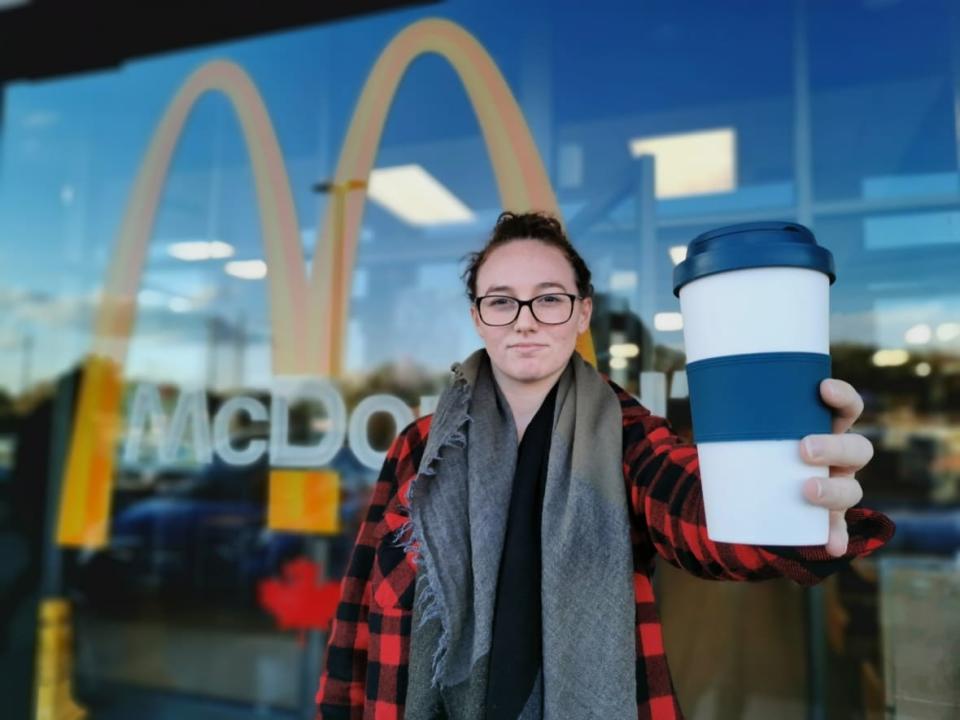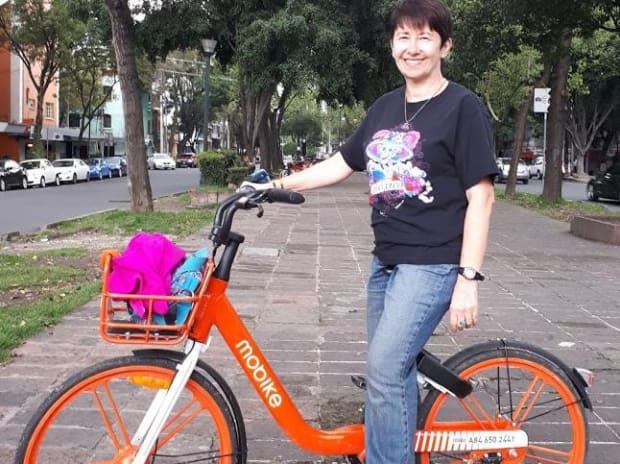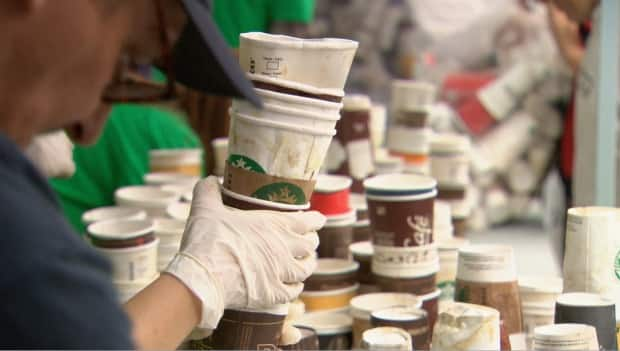McDonald's still rejects customers' reusable mugs due to COVID-19 — unless they live in Vancouver

Our planet is changing. So is our journalism. This story is part of a CBC News initiative entitled "Our Changing Planet" to show and explain the effects of climate change. Keep up with the latest news on our Climate and Environment page.
Donna Patterson of Toronto said she was disappointed when she visited two local McDonald's restaurants in the past couple of months and was told she couldn't be served tea in her reusable mug.
"It doesn't make sense," said Patterson, who volunteers with a Toronto environmental group. "I said to them, 'You're going to lose business from this, because I noticed there's a groundswell of people that want to be [using reusables] now.'"
McDonald's Canada has yet to adopt a permanent national policy allowing customers to be served coffee or tea in their reusable mugs, instead of disposable cups.
The fast-food chain blames the delay on COVID-19 related health concerns. Even so, since Jan. 17, McDonald's has accepted customers' reusable mugs in Vancouver, following the implementation of a city bylaw mandating those buying coffee in disposable cups pay a 25-cent fee.
Some environmentalists say McDonald's continuing to reject customers' personal mugs in other locations is unacceptable as the planet faces numerous environmental threats.
"McDonald's should absolutely be encouraging customers to bring their own cups to every store," said Karen Wirsig, project manager for Environmental Defence.
"Why are they delaying this? This is such low-hanging fruit. 'Oh, you've got your own cup. I can pour stuff into it.' … I don't even understand any excuse."

Disposable coffee cups are problematic because they're lined with plastic, making them difficult to recycle. As a result, most of the cups — and their plastic lids — end up in landfills or as litter, strewn along roadsides and shorelines.
In fact, disposable cups and lids combined consistently make The Great Canadian Shoreline Cleanup's annual "dirty dozen" list because its volunteers collect so many of them.
"Coffee cups and lids have been found to be one of the most pervasive single-use plastic items found in our oceans and on our shorelines," said the environmental organization, Oceana Canada, in a statement earlier this year.
Pre-pandemic, it was standard practice for coffee shops to accept reusable mugs. McDonald's, however, said it left the decision up to franchisees. Consequently, many locations rejected personal mugs, sparking customer complaints.
In response to an inquiry about the complaints, McDonald's told CBC News in January 2020 that it hoped to implement a national reusable mug policy by the end of the following month.
"We listen to our guests, and we know this is an area of growing importance to Canadians," said spokesperson Ryma Boussoufa in an email.
This week, McDonald's told CBC News that it introduced its national reusable cup policy days before the COVID-19 lockdowns in 2020, but then was forced to suspend the policy due to fears it might help spread the virus

Other major coffee chains, such as Starbucks and Tim Hortons, also stopped accepting reusable mugs when the pandemic hit, but both those chains have since reversed that policy.
Their decision follows claims from many scientists and health professionals that reusable containers can be used safely during the pandemic — as long as businesses incorporate proper sanitary measures.
"We've been looking forward to accepting reusable cups in restaurants again and have been working hard with Tims restaurant owners to ensure we do so safely and consistently," said Paul Yang, Tim Hortons' senior director of innovation and sustainability in a statement.
The chain began welcoming back reusable mugs on April 6.
'This defies reason'
McDonald's, meanwhile, has yet to resume its nascent national reusable mug policy outside of Vancouver.
"Reintroducing the reusable travel mug program nationally will be handled in a phased approach" as "part of our ongoing commitment to minimize our environmental footprint and protect the planet," a McDonald's spokesperson said in an emailed statement to CBC News. The company offered no specific dates or timeline.
As a customer, Patterson suggests McDonald's had no choice but to accept reusable mugs in Vancouver because of the city's new bylaw, and said it's incomprehensible why the chain can't also accept the mugs in other regions.
"If they can do it in Vancouver, they can do it everywhere," she said. "Why would they do a phased approach?"
McDonald's did not respond to questions about why only Vancouver locations are currently accepting personal mugs.
Watch: What half a degree of warming could mean for climate change
Wirsig said that to encourage people to embrace reusables, coffee shops should not only accept personal mugs but also incorporate exchange programs where customers buy a store's mug and then exchange it for a clean one — free of charge — each time they order a take-out beverage.
"That's really one of the answers," the environmentalist said. "This really would be easy for them to set up systems and I think people would appreciate it."
A&W is currently piloting a reusable/returnable cup program at more than two dozen locations in Vancouver. Tim Hortons said it's planning to soon launch a similar trial at select Vancouver locations.
Last year, McDonald's also launched a reusable/returnable cup pilot project — in the United Kingdom.
But in Canada, many McDonald's customers are still waiting to be served coffee in their own reusable mugs.
"Get on with it," said Wirsig.

 Yahoo Finance
Yahoo Finance 